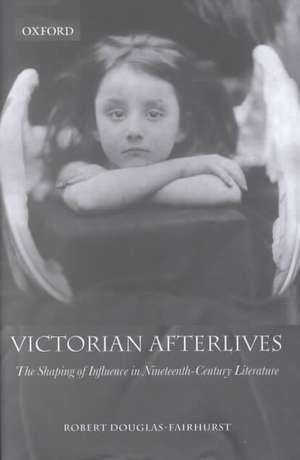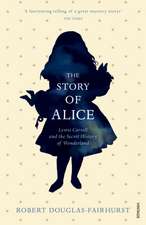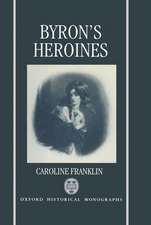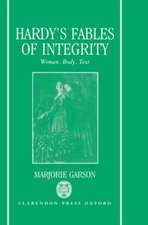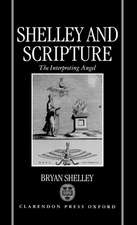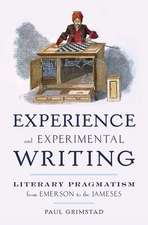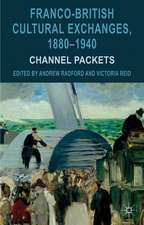Victorian Afterlives: The Shaping of Influence in Nineteenth-Century Literature
Autor Robert Douglas-Fairhursten Limba Engleză Hardback – 7 mar 2002
| Toate formatele și edițiile | Preț | Express |
|---|---|---|
| Paperback (1) | 354.17 lei 31-37 zile | |
| OUP OXFORD – 5 feb 2004 | 354.17 lei 31-37 zile | |
| Hardback (1) | 396.02 lei 31-37 zile | |
| OUP OXFORD – 7 mar 2002 | 396.02 lei 31-37 zile |
Preț: 396.02 lei
Preț vechi: 574.85 lei
-31% Nou
Puncte Express: 594
Preț estimativ în valută:
75.80€ • 78.11$ • 63.99£
75.80€ • 78.11$ • 63.99£
Carte tipărită la comandă
Livrare economică 20-26 februarie
Preluare comenzi: 021 569.72.76
Specificații
ISBN-13: 9780198187271
ISBN-10: 0198187270
Pagini: 388
Dimensiuni: 145 x 223 x 25 mm
Greutate: 0.55 kg
Editura: OUP OXFORD
Colecția OUP Oxford
Locul publicării:Oxford, United Kingdom
ISBN-10: 0198187270
Pagini: 388
Dimensiuni: 145 x 223 x 25 mm
Greutate: 0.55 kg
Editura: OUP OXFORD
Colecția OUP Oxford
Locul publicării:Oxford, United Kingdom
Recenzii
The great strength of Victorian Afterlives lies in the brilliance of Douglas-Fairhurst's close readings
... neatly phrased, incisive commentary is a precious feature of this book: its strength lies in such observations, in the author's highly-trained discrimination as a close reader of words.
It is perhaps the most remarkable achievement of Victorian Afterlives that this book, whose subject seems at first so uncertain, so forced, so peculiar to itself, should emerge as a significant combination of subjects previously known.
Douglas-Fairhurst is extremely well-read in nineteenth-century literature, knowledgeable about his chosen authors, and sensitive to detail with an excellent ear for nuance and echo. He is adept at collecting strange and beautiful quotations and often has interesting and perceptive things to say about them.
This book is one of the most impressive critical analyses of nineteenth-century literary culture that I have read in a long time. A closely written and argued discussion of theories of literary influence in a nineteenth-century context, it ranges widely and makes always interesting and sometimes brilliant connections ... This is a major work of Victorian literary criticism, and a book to be read over and over again for its myriad insights and felicities.
Close readings unravel the manner in which 'dead' voices haunt Tennyson's poetry, and the author is uncommonly sharp-eared for nuance.
Ambitious, delightful, frustrating, wide-ranging, often beautifully written ... Its sheer range sets it apart from the usual academic monograph ... refreshingly free of jargon.
One of the enjoyable features of Douglas-Fairhurst's writing is its commitment to close reading. He can make a word or line come alive by a turn of phrase which resonantly prolongs its momentum.
... neatly phrased, incisive commentary is a precious feature of this book: its strength lies in such observations, in the author's highly-trained discrimination as a close reader of words.
It is perhaps the most remarkable achievement of Victorian Afterlives that this book, whose subject seems at first so uncertain, so forced, so peculiar to itself, should emerge as a significant combination of subjects previously known.
Douglas-Fairhurst is extremely well-read in nineteenth-century literature, knowledgeable about his chosen authors, and sensitive to detail with an excellent ear for nuance and echo. He is adept at collecting strange and beautiful quotations and often has interesting and perceptive things to say about them.
This book is one of the most impressive critical analyses of nineteenth-century literary culture that I have read in a long time. A closely written and argued discussion of theories of literary influence in a nineteenth-century context, it ranges widely and makes always interesting and sometimes brilliant connections ... This is a major work of Victorian literary criticism, and a book to be read over and over again for its myriad insights and felicities.
Close readings unravel the manner in which 'dead' voices haunt Tennyson's poetry, and the author is uncommonly sharp-eared for nuance.
Ambitious, delightful, frustrating, wide-ranging, often beautifully written ... Its sheer range sets it apart from the usual academic monograph ... refreshingly free of jargon.
One of the enjoyable features of Douglas-Fairhurst's writing is its commitment to close reading. He can make a word or line come alive by a turn of phrase which resonantly prolongs its momentum.
